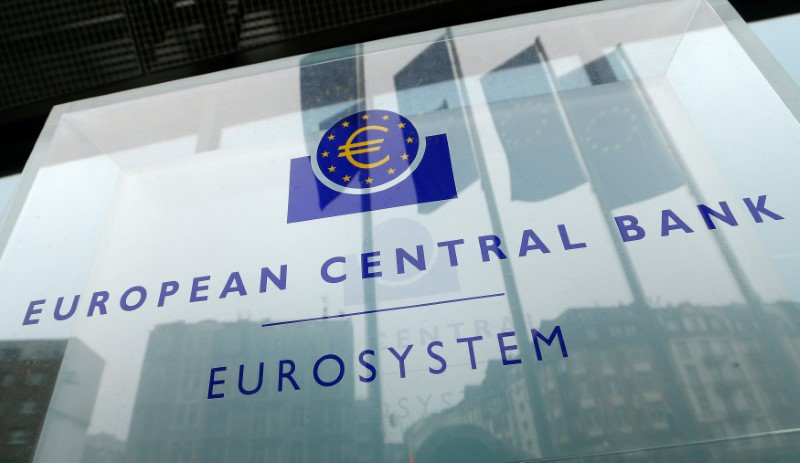See also


 28.04.2025 09:24 AM
28.04.2025 09:24 AMOfficials at the European Central Bank are preparing for further interest rate cuts, anticipating that U.S. tariff policies will inflict serious and prolonged damage on the economy, even if the Trump administration softens its stance.
After a series of intense meetings at the International Monetary Fund last week, most European policymakers left Washington disappointed. Many expect that Donald Trump's unpredictable behavior will continue to fuel uncertainty, holding back spending and investment for some time. Clearly, the impact of Trump's unpredictability extends far beyond the United States. International trade agreements are being revisited, creating tensions between countries and undermining confidence in the global trading system. Such instability complicates forecasts of future economic conditions and makes informed business decisions more difficult.
The appreciation of the euro, tighter financing conditions due to increased fiscal spending, and falling energy prices only strengthen the case for a rate cut at the June meeting. What happens after that will largely depend on updated inflation forecasts for the coming year and beyond.
Clearly, such expectations are currently acting as a drag on the euro's growth against the U.S. dollar, which had been observed in recent months.
Economists at Bank of America, Deutsche Bank, and Morgan Stanley predict that the deposit rate in the eurozone, currently at 2.25%, will be lowered to at least 1.5% this year to stimulate demand.
Governing Council members, including Olli Rehn and Gediminas Simkus, have recently indicated they are open to considering lowering borrowing costs to such levels. Meanwhile, others, such as Klaas Knot and Martins Kazaks, have cautioned against excessive action, arguing that the medium-term consequences of recent developments remain unclear.
ECB President Christine Lagarde has generally stuck to the official line. "When the size and distribution of shocks are extremely uncertain, we cannot ensure stability by committing to a specific path for rates," she told finance ministers and central bank colleagues last Friday.
Most recent reports point to weaker growth ahead. A purchasing managers' survey revealed subdued confidence and sluggish demand, while the IMF's forecasts, published on Tuesday, downgraded economic growth for the 20 eurozone countries to just 0.8% this year, from 1% previously. Slower growth is accompanied by lower inflation. The IMF, like the ECB, predicts that price pressures will reach 2% sometime in the second half of this year.
Nevertheless, when asked about the possibility of a bigger move, ECB Chief Economist Philip Lane said in an interview that there is no reason to assume the central bank would always move in default increments of 25 basis points, though he emphasized this was a theoretical point.
Technical Outlook for EUR/USD
Currently, buyers need to focus on reclaiming the 1.1390 level. Only then will it be possible to aim for a test of 1.1435. From there, a move toward 1.1490 could be attempted, although doing so without support from major players will be quite challenging. The ultimate target would be the 1.1570 peak. If the trading instrument falls, I expect significant buying interest only around 1.1315. If no buyers appear there, it would be wise to wait for a retest of the 1.1260 low or consider opening long positions from 1.1215.
Technical Outlook for GBP/USD
Pound buyers need to break through the nearest resistance at 1.3340. Only this would allow aiming for 1.3380, although breaking above that level would be quite difficult. The ultimate target remains the 1.3416 area. In case of a decline, bears will attempt to regain control at 1.3285. If they succeed, a break of this range would deal a serious blow to bullish positions and push GBP/USD toward a minimum of 1.3245, with the potential to reach 1.3205.
You have already liked this post today
*The market analysis posted here is meant to increase your awareness, but not to give instructions to make a trade.
Markets remain tense. The U.S. Dollar Index and the cryptocurrency market are stagnating, caught between opposing forces. Investors are tensely awaiting the outcome of the Federal Reserve's monetary policy meeting
There are very few macroeconomic events scheduled for Tuesday. In the Eurozone and Germany, the second estimate of April's services PMI will be published, but these are unlikely to attract
InstaTrade
video analytics

Your IP address shows that you are currently located in the USA. If you are a resident of the United States, you are prohibited from using the services of InstaFintech Group including online trading, online transfers, deposit/withdrawal of funds, etc.
If you think you are seeing this message by mistake and your location is not the US, kindly proceed to the website. Otherwise, you must leave the website in order to comply with government restrictions.
Why does your IP address show your location as the USA?
Please confirm whether you are a US resident or not by clicking the relevant button below. If you choose the wrong option, being a US resident, you will not be able to open an account with InstaTrade anyway.
We are sorry for any inconvenience caused by this message.

